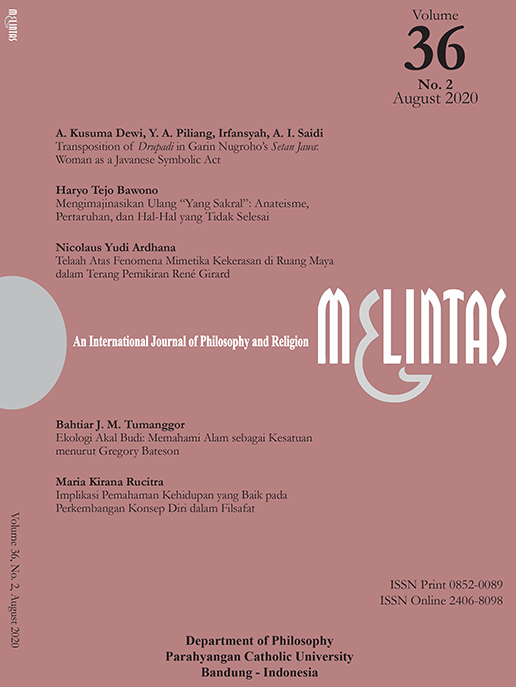Implikasi Pemahaman Kehidupan yang Baik pada Perkembangan Konsep Diri dalam Filsafat
DOI:
https://doi.org/10.26593/mel.v36i2.5379Keywords:
purpose, the good life, centered self, decentered self, ethics, self-enlargementAbstract
Throughout their lives, human beings have been shadowed with existential queries such as “What is my purpose?” and “How should I reach that purpose?” These big questions arise in accordance with an assumption that a good life must be a purposeful life. However, the same questions often lead to dilemmatic disposition of following my own goal or following other ideals designed by institutions or even theories. This article elaborates humans’ tendencies to perceive themselves as a fixated part of and to lean their purpose of life on the so-called grand narratives. One of the narratives shows that humans’ purpose in life is rooted in the understanding of humans’ essence. Humans’ essence is here viewed in two aspects, that is, the ‘centered’ self and the ‘decentered’ self. However, these two aspects are not without consequences. The centered self understood in the light of Aristotle and Kant holds a bigger possibility of ignoring historical and cultural values which basically play the pivotal parts of a human being’s constitution. On the other hand, the decentered self understood in the light of Richard Rorty tends to heavily impact the clarity of the path the self along with its purposes. This article attempts to unfold the problems around human being’s ‘center’ and their implications to the concept of self.
Downloads
Published
Issue
Section
License
Copyright (c) 2020 Maria Kirana Rucitra

This work is licensed under a Creative Commons Attribution-NonCommercial 4.0 International License.
MELINTAS applies the Creative Commons Attribution (CC BY NC) license to articles and other works we publish. If you submit your paper for publication by MELINTAS, you agree to have the CC BY NC license applied to your work.


